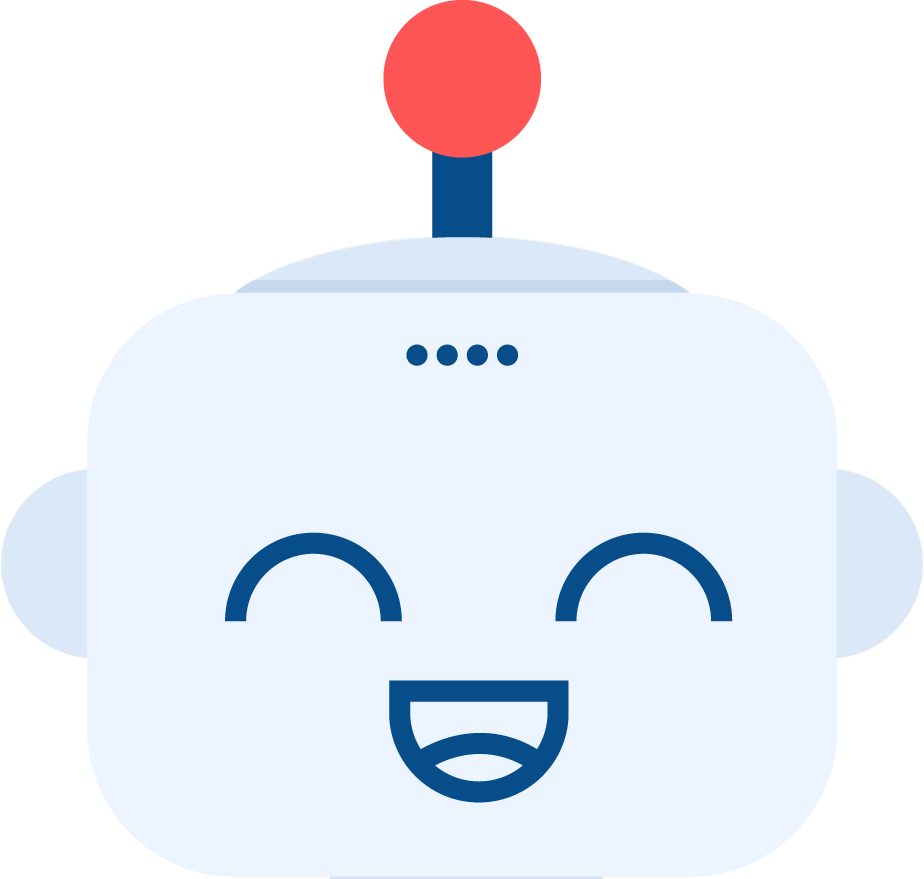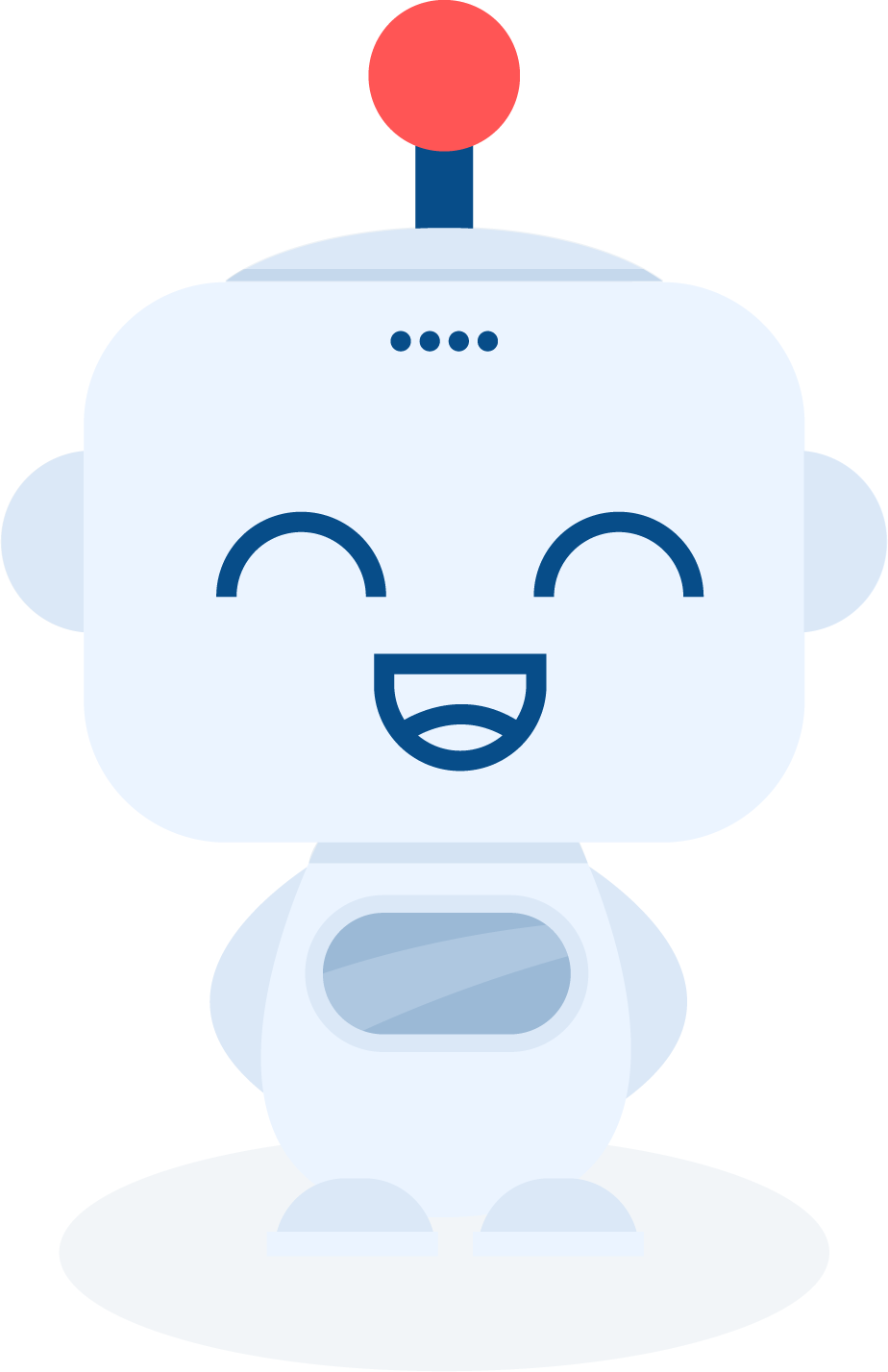
Meet your virtual tutor
What is A.I.D.A?
A.I.D.A stands for Artificially Intelligent Digital Assistant. In essence, it is a virtual tutor that can understand requests made by a student, process the user’s intent, and respond in a conversational manner. A.I.D.A can provide students with unique feedback for their work by analyzing a student’s strategy to a given problem and providing students with real time updates on their progress.
The primary function of A.I.D.A is to give middle school, high school, and college students a cheaper alternative to test preparation programs or tutors through an AI bot that mimics a human teacher. Users can send pictures of pages from their textbook or enter a desired subject, and A.I.D.A will generate practice questions on the imputed content through natural language processing and analyzing the semantics of the documents. Based on the students’ performance on these generated questions, A.I.D.A will created a personalized plan for every student while addressing issues and questions the student has throughout the process.
Try the DemoHow it Works.
-
Provide Materials.
Send A.I.D.A pictures of your notes, textbook chapter, or worksheets for a unit your are studying in class.
-
Generate Practice Exercises & Quizzes.
A.I.D.A will analyze the content of the given documents and will create multiple choice, fill in the blank, and matching questions in the form of practice problems or complete practice tests.
-
Create a Personalized Plan.
Upon completion of the generated practice, A.I.D.A will determine strength and weakness areas and create a unique study plan. The study plan will consist of subjects to review, resources for learning confusing topics, and additional practice questions.
-
Ask Questions.
If you have any questions along the way or are confused by parts of a topic of study, ask A.I.D.A just as you would ask a teacher. Just like other virtual assistants such as Siri, Google Assistant, and Cortana, A.I.D.A can recognize and respond to user requests.

Demo the chat.
Demo the app.
General Uses of AI
Personal
AI can be used to make your life easier. Every day technologies like smart home systems and personal assistants are examples of artificial intelligence. However, AI’s personal uses go beyond the scope of convenience. AI can be used for personalized learning; it can learn from your mistakes and craft a curriculum based on your learning style. It can be used for personal finance; for example, an app called Digit analyzes user habits to optimize spending and saving. AI can also be used to manage your portfolio, providing financial advice with minimal human intervention. Another up and coming use of AI is in self driving cars. These cars not only save time but also significantly reduce the chances of accidents. Self driving cars have an accident rate lower than the national average by 25% and tend to have less severe accidents in general. They also follow the best driving practices that the average human driver does not and communicate with other cars to craft the most efficient routes to your destination.
Commercial
AI can be used by businesses to analyze their sales and predict which items will sell best. Nowadays, most tech companies thrive not because of the massive amounts of data they collect but because of how they analyze it. Companies such as Google use this data to suggest the best advertisements to their customers; they drive their profits, and customers are shown the product that most suits them. One example of this is with YouTube. Google’s recommendation algorithm for YouTube videos analyzes the videos that people watch and uses this data to improve its own suggestions on which videos the user would be most likely to click on. In turn, YouTube increases the time a user spends on the site, the number of advertisements they click on, and consequently their profits.
Educational
AI technologies have been created to teach students about subjects in school, real life applications, and practically any other topic. These technologies are not prevalent yet, but as they are optimized through collection of more data and improvement of algorithms, they will gain traction and may even replace the traditional education system altogether. One example of AI based teaching programs is Massive Open Online Courses, or MOOC’s. Through MOOC’s, students anywhere can take online courses created by world renowned professors for free. They eliminate the need for a teacher through automatic grading systems and bots that answer most of the students’ questions. Such courses minimize the cost for education, increase accessibility and convenience, and create a personalized learning experience for the student. Already, MOOC’s have collected large amounts of data to analyze how students learn. These learning analytics are being used to improve educational courses on a large scale.
Recreational
AI has applications that can save lives, increase business revenue, and completely transform our education system. However, it also has many uses that make life more enjoyable and convenient. One AI service created by Salesforce summarizes long articles for people to read. People no longer need to sift through large amounts of information to learn the part that they need. This service brings information to people who don’t necessarily have the time to go through lengthy articles. AI can also be used in games. 18 years ago, IBM’s Deep Blue beat world champion Garry Kasparov at chess. Now, AI technologies such as Google’s AlphaZero can master any games that humans would take months to excel at in just a few hours. The applications of learning these games include providing challenging opponents to human players and to provide tips to humans on their gameplay. Even chess grandmasters such as Magnus Carlsen can improve their gameplay through AI.
Uses of A.I.D.A
![]()
Teacher
Want to learn a new topic? By collecting data from documents that users scan, A.I.D.A has developed a knowledge base of any topics pertaining to school as well as many life skills. A.I.D.A knows and will adapt to your learning style.
![]()
Tutor
AIDA can create personalized study curriculums just for YOU. Have an upcoming test? A.I.D.A will prepare the perfect study guide for you and ask you questions about areas that you generally struggle with.
![]()
Motivator
A.I.D.A uses Watson API when conversing with users to closely monitor emotions. It can detect when a user is stressed for a test, or having personal struggles and has learned to offer advice to users to reduce their emotional stress.
![]()
Personal Assistant
Have a question? Ask A.I.D.A. Need to set reminders for upcoming tests? Ask A.I.D.A. Want to have a conversation about a topic that interests you? Ask A.I.D.A.
Our Pricing
A.I.D.A will be available through a subscription service. If you are simply looking to give the software a try, the affordable one month acesss option is the best for you. If you decide to continue using the application, the long term subscriptions will save you money. All subscription options will give you access to all of AIDA's features and benefits!
Current Technology vs. A.I.D.A
IBM Watson
IBM’s Watson technology uses natural language processing and deep learning, both of which are branches of machine learning, to extract metadata and sentiment from text.
Mobile A.I.
Personal assistants such as Siri, Cortana, and Google Assistant are accessible at our fingertips. They can set reminders, make calls, and answer questions to make every day life easier.
A.I.D.A
AIDA uses OCR technology to convert inputted documents into text and performs latent semantic analysis to understand the user's intent and generate questions accordingly.
Safety & Liabilities
A science fiction writer, Isaac Asimov, created three laws of robotics that must be followed to create harmless AI technologies. A.I.D.A was carefully designed to follow all three of these laws because here at A.I.D.A. Technologies, safety is our utmost priority.
✔ A robot may not injure a human being or, through inaction, allow a human being to come to harm.
✔ A robot must obey orders given it by human beings except where such orders would conflict with the First Law.
✔ A robot must protect its own existence as long as such protection does not conflict with the First or Second Law.
First Law
A.I.D.A. was not designed with an intention to harm, and our self-learning algorithms strictly pertain to educating students (creating test questions, evaluating learning styles, etc.).
Second Law
A.I.D.A creates curriculums and questions based on what the user wants and his/her learning style, so our users have maximum control over the software.
Third Law
A.I.D.A. does not have any self-destructive capabilities and simply serves as an interactive learning module.
Potential Liabilities
A.I.D.A. collects large amounts of data from the documents that users scan and how they react to certain learning methods. This may raise privacy concerns, so the data collected by A.I.D.A is tracked anonymously i.e. without a name associated with it.